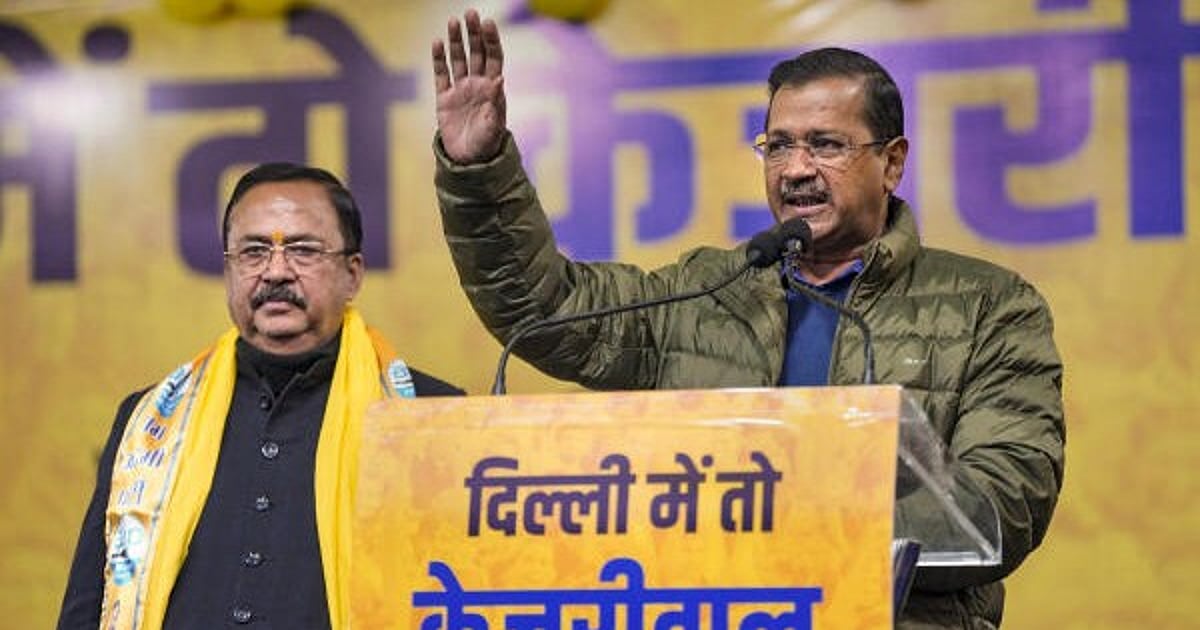 |
|
The recent removal of security cover from Delhi Chief Minister Arvind Kejriwal has sparked a significant political controversy, with Kejriwal himself publicly accusing the Bharatiya Janata Party (BJP) and its president, Amit Shah, of using the move as a purely political tactic. The incident occurred ahead of the upcoming 2025 Delhi Assembly elections, fueling speculation about its timing and potential impact on the electoral landscape. Kejriwal's press conference, held on Friday, served as a platform to directly address these concerns and level accusations against his political rivals. He framed the decision to remove his security as an act of deliberate intimidation aimed at silencing dissent and undermining his campaign efforts. This assertion underscores the heightened political tension prevailing in Delhi in the run-up to the elections.
Kejriwal's accusations point to a deeper political strategy at play. By publicly challenging the BJP's actions, he attempts to garner public sympathy and portray himself as a victim of political persecution. This narrative is likely to resonate with a segment of the electorate, particularly those who perceive the BJP as authoritarian or heavy-handed. The timing of the security removal, occurring just as the election cycle begins to intensify, further amplifies the political significance. The move could be interpreted as an attempt to disrupt Kejriwal's campaign activities and limit his access to public platforms, potentially hindering his ability to reach voters effectively. The lack of transparency surrounding the decision to remove his security has also added fuel to the fire, leaving many questioning the true motives behind the action.
Beyond the immediate political implications, the controversy raises broader questions about the security of political leaders and the independence of security agencies. Kejriwal's claims imply a level of political interference in security arrangements, undermining the perceived neutrality and objectivity of these critical institutions. This raises concerns about the potential misuse of security protocols for political advantage and the erosion of public trust in institutions responsible for safeguarding public figures. The debate extends beyond Kejriwal's personal security; it underscores the fragile balance between political rivalry and the need for impartial security measures in a democratic society. Furthermore, the incident highlights the increasingly polarized political climate in Delhi, where political maneuvering often overshadows concerns about public safety and responsible governance.
The law and order situation in Delhi, particularly the activities of various gangster groups, also formed a significant part of Kejriwal's press conference. He directly implicated the BJP and Amit Shah, suggesting a lack of effective law enforcement and an indirect endorsement of criminal activities for political gain. This accusation adds another layer of complexity to the already tense political climate. By connecting the security removal with the broader law and order issue, Kejriwal aims to paint a picture of a government that prioritizes political gamesmanship over the safety and well-being of its citizens. This narrative could resonate with voters concerned about rising crime rates and the government’s perceived inability to address these concerns effectively. The effectiveness of this strategy, however, will depend on public perception and the extent to which the BJP can effectively counter Kejriwal's accusations.
The unfolding events in Delhi highlight the intense political battles expected in the upcoming elections. The removal of Kejriwal's security cover serves as a stark reminder of the lengths to which political parties might go to gain an edge, even if it means undermining democratic norms and potentially compromising the safety of public figures. The ensuing public debate will likely shape the narrative surrounding the elections, influencing voter sentiment and ultimately determining the electoral outcome. The coming months will be crucial in assessing the lasting impact of this controversy and its potential to reshape the political landscape of Delhi.
Source: Delhi Assembly Elections 2025 | Pure politics behind move to remove security cover: Arvind Kejriwal
